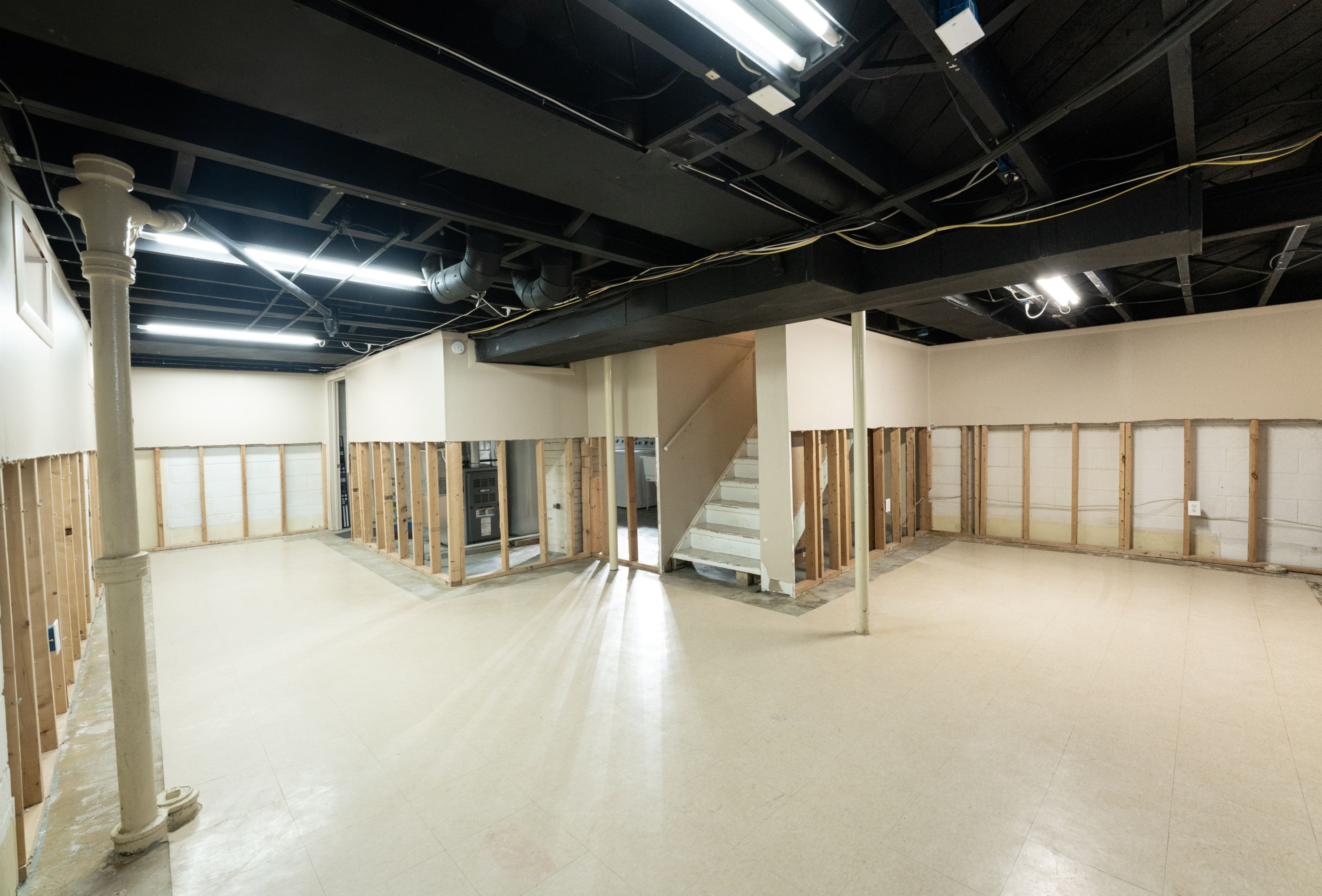
Even though we deal with high humidity, heavy rain, and a naturally high water table on the Eastern Shore, most insurance policies don’t cover basement waterproofing.
But that doesn’t mean you shouldn’t waterproof your basement! The cost of waterproofing is nothing compared to the repairs you’ll have to make if you run into a serious flooding or drainage problem.
Keep reading to learn more about basement waterproofing, why it’s worth the cost (even without an insurance check), and how you can save with rebates and incentives.
Why Insurance Won’t Cover Basement Waterproofing
Most homeowner’s insurance policies are designed to cover sudden, unexpected damage caused by a disaster like a fire. They don’t pay for routine home maintenance like upgrading your HVAC system, replacing your roof, or waterproofing your basement.
But what if water seeps in through your foundation? That’s sudden and unexpected, right?
Unfortunately, most insurance companies don’t see it that way. Water coming in through a leak or crack in your foundation is typically considered an issue that develops over time, not sudden damage. If you have a flood insurance policy, it might cover the repairs, but basic home insurance usually won’t.
When Insurance Might Cover Water Damage
There are some situations where insurance may step in to help with basement or crawl space water damage:
- Burst pipes or plumbing failures – If a pipe bursts unexpectedly, causing significant water damage, your insurance may cover both the repairs and cleanup.
- Sump pump failure (if you have an endorsement) – Some policies allow you to add coverage for sump pump failures and water backup, which can help if your system stops working during a storm.
- Flood insurance policies – Standard homeowner’s insurance does not cover flooding from storms or rising groundwater, but if you have a separate flood insurance policy, it might cover this kind of damage.
Why Basement Waterproofing Is Worth the Investment Without Insurance
Even though insurance won’t cover it, basement waterproofing is one of the best investments you can make in your home—especially in a moisture-prone region like ours. It will protect you against serious and expensive damage like mold, wood rot, and structural issues.
Benefits of foundation waterproofing include:
- Less risk of flooding and water damage
- Less risk of mold growth
- Less risk of wood rot and structural damage
- Better indoor air quality
- Less indoor humidity
What If You Have a Crawl Space?
Crawl spaces are just as vulnerable to moisture intrusion as basements, if not more so. Many Eastern Shore homes have outdated vented crawl spaces that allow rain and humid summer air to enter, creating the perfect environment for mold, pests, and musty odors. Crawl space encapsulation—which involves sealing the crawl space with a vapor barrier, insulating, and sometimes installing a dehumidifier—keeps moisture under control.
Rebates for Basement Sealing & Crawl Space Encapsulation
You might not be able to file an insurance claim for foundation waterproofing, but you may be eligible for rebates! Home upgrades like basement air sealing, basement insulation, and crawl space encapsulation that keep your home dryer and healthier are often eligible for energy efficiency incentives, including:
- Home Performance with ENERGY STAR (HPwES) Rebates - Customers of BGE and Delmarva Power are eligible for up to $10,000 in rebates for insulation and air sealing, which can include basement sealing and crawl space encapsulation. As an HPwES-certified contractor, Total Home Performance is the only basement and crawl space expert in the area that can help you take advantage of these rebates.
- The Energy Efficient Home Improvement Tax Credit - Save 30% on eligible home improvements, including insulation and air sealing, up to $1,200.
Don’t wait until your basement floods to think about waterproofing! Take action now to keep your home dry and protected.